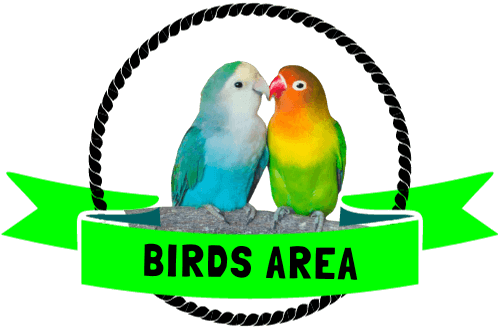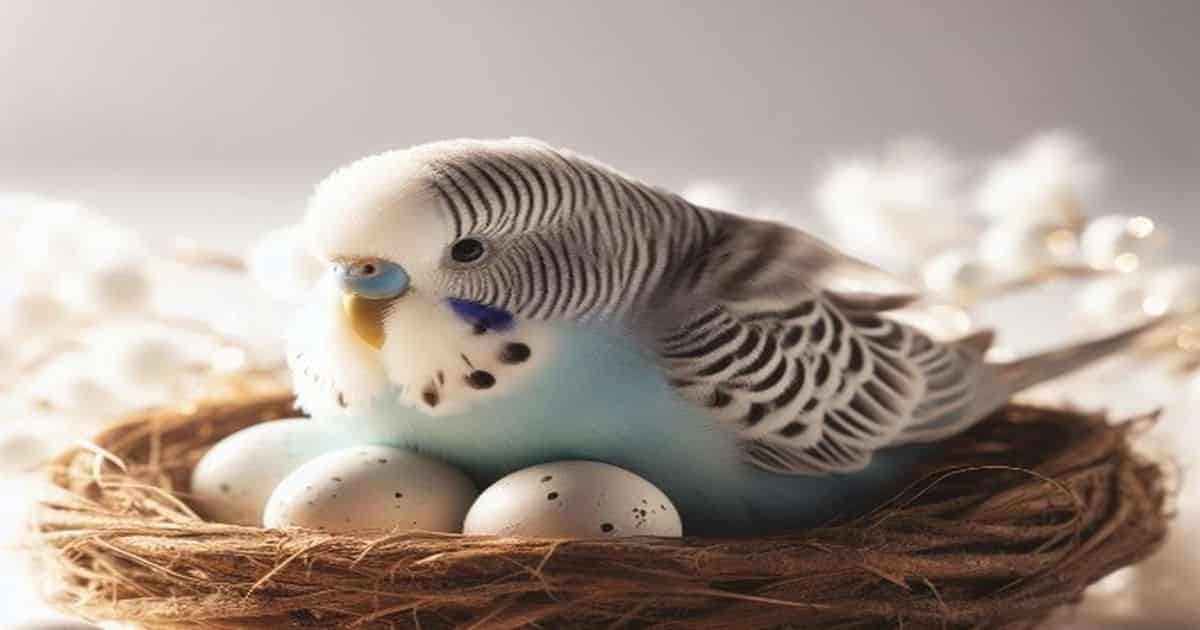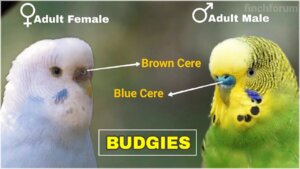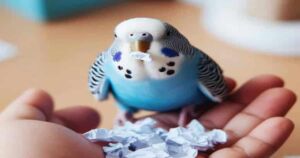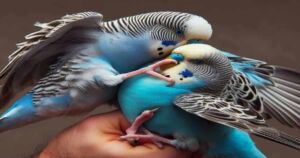Dead Budgie Egg | Unraveling the Mystery
Welcome to BirdsArea!
Have you ever found a dead budgie egg in your pet’s nest? It’s a common concern for many bird owners. Why do budgie eggs sometimes fail to hatch?
The simple answer is that not all eggs are fertile. For example, if a female lays eggs without a male, those eggs will never hatch. Even with a male present, the egg might not develop correctly, leading to a non-viable egg. This could happen due to age, health, or even the nesting conditions.
If you find a dead egg, it’s essential to remove it gently to avoid stress for your budgie. Understanding the reasons can help you provide better care and increase the chances of healthy hatching in the future.
Want to learn more about how to handle and prevent dead budgie eggs? Keep reading!
What Are The Dead Budgie Eggs?
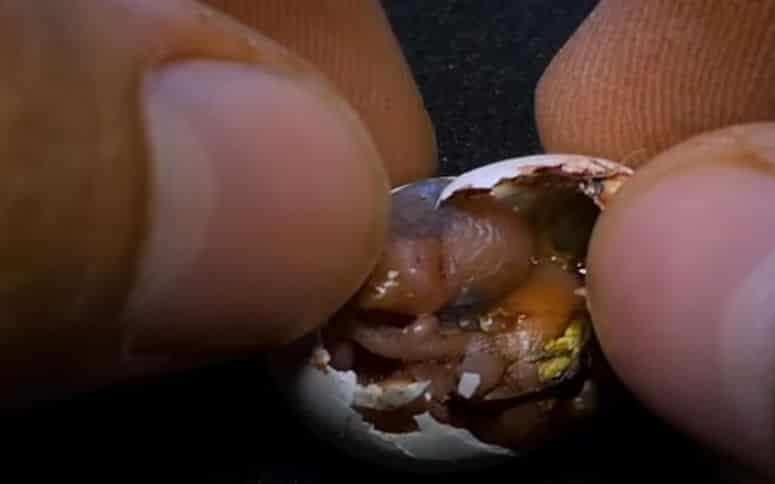
Dead budgie eggs are eggs that won’t hatch because they’re either not fertilized or the chick inside didn’t develop. They stay in the nest but remain cold and unchanged as days pass.
Budgie owners need to remove these eggs. In addition, it keeps the nest clean and helps the mother focus on the good eggs. When you find a dead egg, it’s a sign to check if everything’s okay with the budgies’ home and care.
The eggs themselves are small and look like regular budgie eggs, but they don’t become baby birds.
Common Causes Of Dead Budgie Eggs
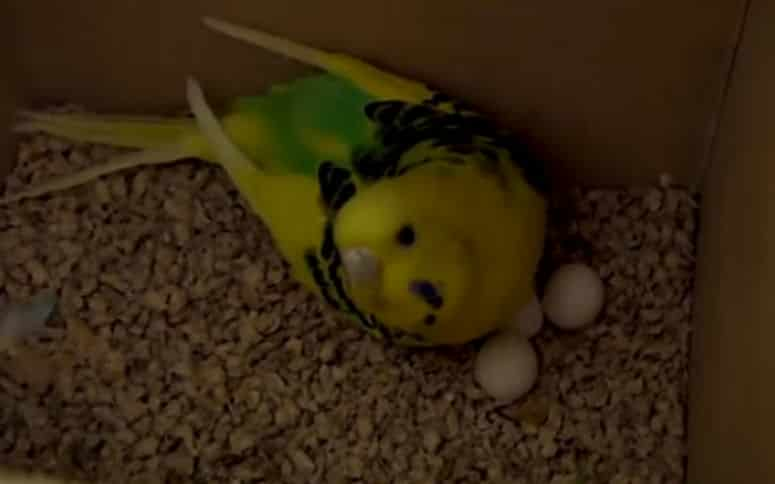
Several common causes can result in a budgie egg failing to hatch. These may include:
- Poor fertility: If the eggs are not properly fertilized, they may not develop properly, ultimately resulting in death.
- Inadequate incubation conditions: Incorrect temperature or humidity levels in the incubator can prevent proper development and lead to the chick’s death inside the egg.
- Genetic abnormalities: Some budgies may carry genetic abnormalities that can affect the development of the chick and result in its death inside the egg.
- Disease or infection: Infections or diseases affecting the developing chick can lead to its death before hatching.
- Physical damage to the egg: Any external injury to the egg, such as a crack or break, can prevent the chick from developing and cause its death.
How To Identify A Dead Budgie Egg?
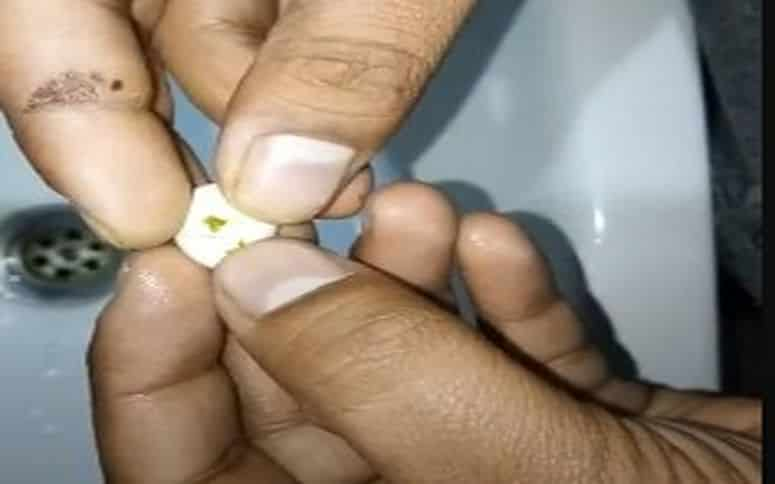
Identifying a dead budgie egg is crucial for a breeder, as it allows them to remove it from the nesting area and avoid potential risks.
Here are some ways to identify a dead budgie egg:
1. Visual Inspection
Dead budgie eggs may appear discolored or have an abnormal texture. They may look darker, cloudy, or even moldy compared to healthy eggs.
2. Lack of Movement
Tapping the egg and observing for any signs of movement can help determine if the chick is alive or dead. Dead eggs will show no signs of movement.
3. Candling
This involves shining a bright light through the egg to observe the embryo’s development. A dead budgie egg will show no signs of blood vessels, movement, or a developing chick.
However, removing dead eggs from the nesting area and providing the best conditions for the remaining eggs can help increase the chances of successful hatching.
The Emotional Toll: Mourning The Loss
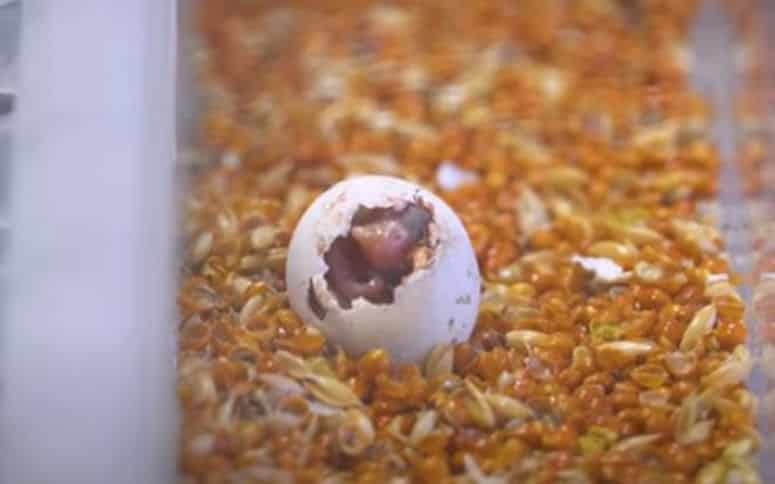
Losing a budgie egg can be a heart-wrenching experience for budgie parents. These small, colorful birds invest much time and energy into incubating their eggs, hoping to witness the miracle of new life.
However, when a budgie egg doesn’t hatch and remains lifeless, it can have a profound emotional impact on the parents.
1. Impact Of A Dead Budgie Egg On Budgie Parents
Losing a budgie egg can have various emotional effects on the parents. After investing their time and energy into incubation, budgies may feel disappointed and sad.
However, this can manifest in behavioral changes such as reduced activity, decreased chatter, and even a loss of appetite. The absence of their expected offspring can leave the parents feeling a deep sense of loss and emptiness.
2. Signs Of Mourning In Budgies
When budgies experience the loss of a mate or offspring, they can exhibit signs of mourning.
These signs may include:
- Decreased vocalization and chirping
- Unusual silence and stillness
- Loss of interest in toys or other usual activities
- Withdrawal from social interactions
- Changes in eating habits, such as reduced appetite
- Increased sleep or lethargy
However, budgie owners must be observant and sensitive to these signs of mourning, as it indicates that the birds are experiencing emotional distress.
3. How To Support Budgies In Mourning The Loss Of A Mate Or Offspring
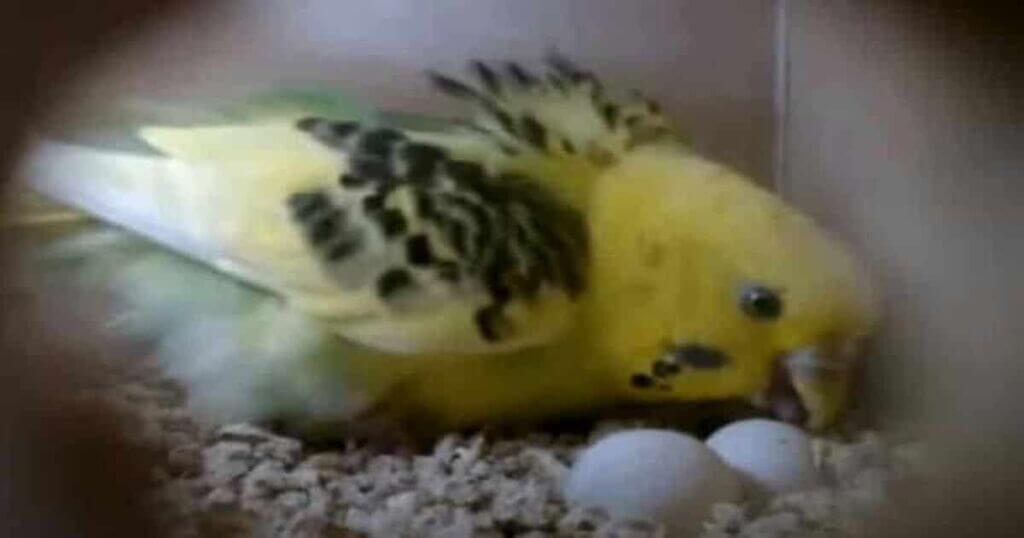
If your budgies are mourning the loss of a mate or offspring, there are several ways you can provide support:
- Creating a calming environment: Ensure the cage or aviary is quiet and peaceful, away from loud noises and disruptions.
- Offering companionship: If possible, introduce another budgie into the environment to provide companionship and alleviate feelings of loneliness.
- Providing comforting objects: Place familiar toys, perches, and nesting materials in the cage to offer a sense of security and familiarity.
- Gentle interaction: Spend quality time with your budgies, engaging in gentle interactions such as whispering or singing soothing melodies.
- Healthy diet: Offer nutritious food and treats to ensure their physical well-being, as emotional distress can impact their appetite.
Coping With A Dead Budgie Egg
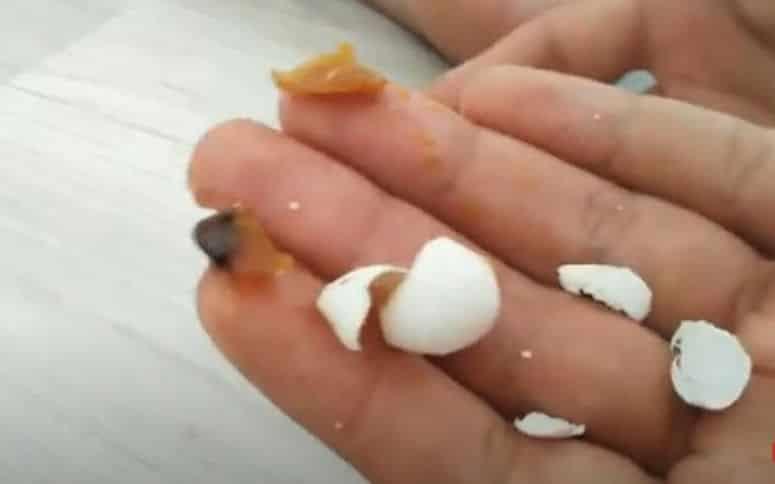
Finding a dead budgie egg can be a disheartening experience for any budgie owner. However, properly handling and disposing of the egg is crucial, preventing future occurrences and seeking professional assistance for further guidance.
Here, I discuss the steps to cope with a dead budgie egg and ensure the well-being of your budgies.
1. Handling And Disposal Of Dead Budgie Eggs
If you come across a dead budgie egg, handling it carefully to prevent any potential infections is crucial.
First, wear disposable gloves to protect yourself from bacteria or contaminants. Then, use a sealable plastic bag or container to collect the egg. Place the egg carefully in the bag or container, ensuring it’s completely sealed.
Finally, dispose of the bag or container according to your local regulations. This might involve placing it in a separate sealed bag and putting it in the trash or contacting your local vet for proper disposal guidance.
Thoroughly wash your hands with soap and warm water after handling the dead budgie egg.
2. Preventing The Occurrence Of Dead Budgie Eggs In The Future
While it’s impossible to prevent all occurrences of dead budgie eggs, there are steps you can take to minimize the risk.
Here are some tips for preventing the occurrence of dead budgie eggs in the future:
- Ensure your budgies receive a balanced and nutritious diet to promote overall health and reproductive success.
- Maintain a clean and hygienic living environment for your budgies, regularly cleaning their cage and providing fresh bedding.
- Monitor the breeding pair closely, ensuring they receive proper care and attention during incubation.
- Consult with an avian veterinarian or experienced budgie breeder for guidance on breeding best practices and potential health issues.
Consider providing additional support during the incubation period, such as supplemental heat and humidity, if a professional recommends it.
Personal Stories From Budgie Owners Who Have Experienced A Dead Budgie Egg
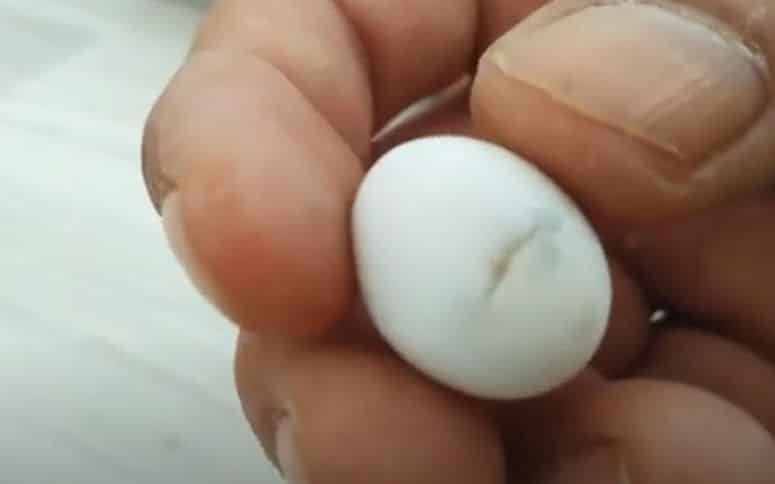
Many budgie owners have faced the unfortunate reality of discovering a dead budgie egg in their nest. However, this heart-wrenching experience has led them to share their personal stories, seeking solace and guidance from their fellow budgie enthusiasts.
- Reddit User 1: “Is this budgie egg alive or dead? I check on the parents frequently if they are incubating the eggs, and today should be the final day for it to incubate. But when I candle it, it looks lifeless.”
- Reddit User 2: “Mother Budgie dies, leaving behind an unhatched egg. I managed to rescue the baby budgie and care for it myself.”
- Reddit User 3: “My female budgie passed away after laying eggs. Now I am left responsible for caring for the remaining eggs.”
Additional Advice For Budgie Owners Facing A Similar Situation
Through their experiences, budgie owners have gained valuable insights and want to support others who may find themselves in the same predicament.
Here are some lessons learned and advice from these empathetic budgie owners:
Ensuring Proper Incubation
Budgie owners emphasize the importance of monitoring the incubation process closely.
Regularly candling the eggs and observing for signs of movement or heartbeat is essential to determine if an egg is alive or dead.
Mourning and Depression
Budgies show signs of mourning and depression when their partner or chick dies.
Owners should be aware of these behaviour changes and provide extra care and attention to the surviving budgies.
Seeking Veterinary Assistance
If you suspect an egg to be dead or encounter any difficulties during the incubation process, it is advised to seek professional guidance from avian veterinarians or experienced budgie breeders.
Removing Dead Eggs
When you realize an egg won’t hatch because the chick inside has died, taking that egg out of the nest is essential. However, this keeps the nest clean and stops any problems the bad egg could cause for the other eggs or the mother and father budgies.
How To Save Budgie’s Eggs?
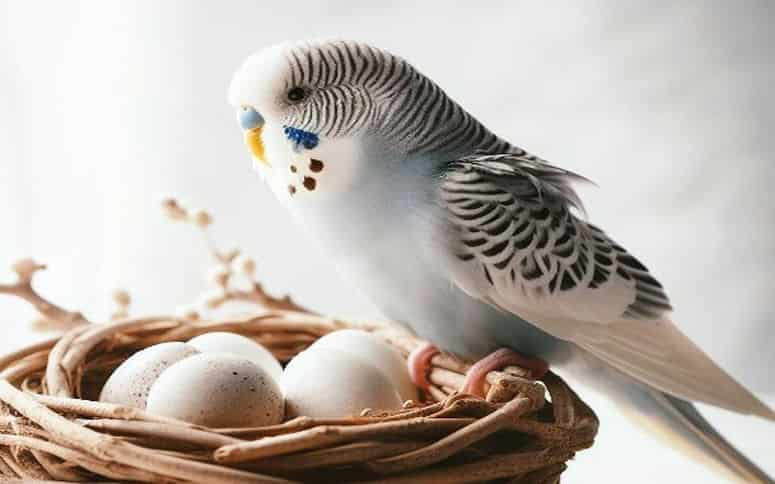
Saving budgie eggs and ensuring they have the best chance of hatching involves several careful steps:
- Maintain the Right Environment
Budgie eggs need a warm and stable temperature between 99.5 and 100.5 degrees Fahrenheit (37.5 to 38 degrees Celsius) and a humidity level of around 65%. Use an incubator or ensure the breeding area is at a consistent temperature if the mother is not always sitting on the eggs.
2. Provide a Proper Nesting Box
The nesting box should be comfortable, safe, and clean, lined with suitable nesting material such as shredded paper or softwood shavings.
3. Ensure a Balanced Diet
The parent budgies should have a nutritious diet of calcium and protein to produce strong eggs. Cuttlebone, mineral blocks, and egg food can be offered as supplements.
4. Minimize Stress
Keep the breeding pair calm, away from loud noises and disturbances. Stress can lead to the parents abandoning the eggs or not incubating them properly.
5. Regular Observation
Keep an eye on the eggs without disturbing them too much. Budgies should be allowed to incubate their eggs without frequent interruptions.
6. Candling The Eggs
After about a week, you can gently candle the eggs to check for signs of development. Use a flashlight in a dark room to look for blood vessels or an embryo inside the egg. If an egg is clear, it may not be viable.
7. Avoid Contamination
Always wash your hands before and after handling the eggs or the nesting box to prevent the spread of bacteria.
Remember, even with the best care, not all eggs may hatch, as the viability of each egg can be affected by factors beyond your control. However, following these guidelines will give the eggs the best chance at developing into healthy chicks.
Frequently Asked Questions Of Dead Budgie Egg
How Do You Check If An Egg Is Still Alive?
Do Budgies Abandon Their Eggs?
How Many Eggs Dies A Budgie Lay?
Is My Budgie Egg Alive Or Dead?
Final Overviews
If you’re wondering whether a budgie egg is alive or dead, there are a few signs to look out for. Lack of movement or heartbeat when candling the egg may indicate that the chick inside has not survived.
Additionally, the egg is likely dead if the incubation period has passed without hatching. Handling eggs carefully and providing the necessary privacy and conditions for successful breeding is essential.
